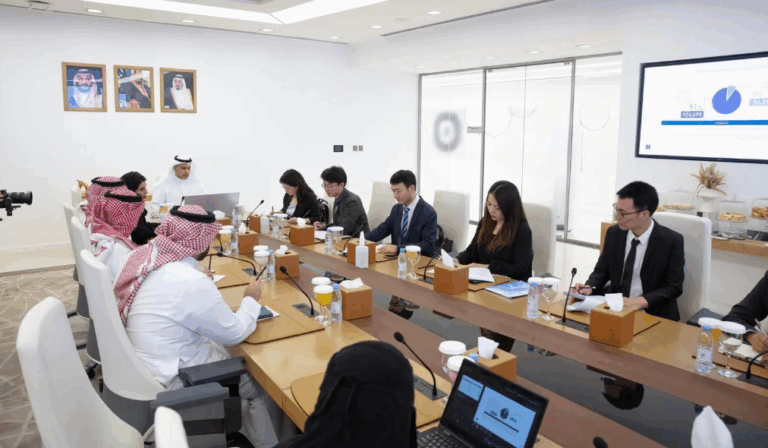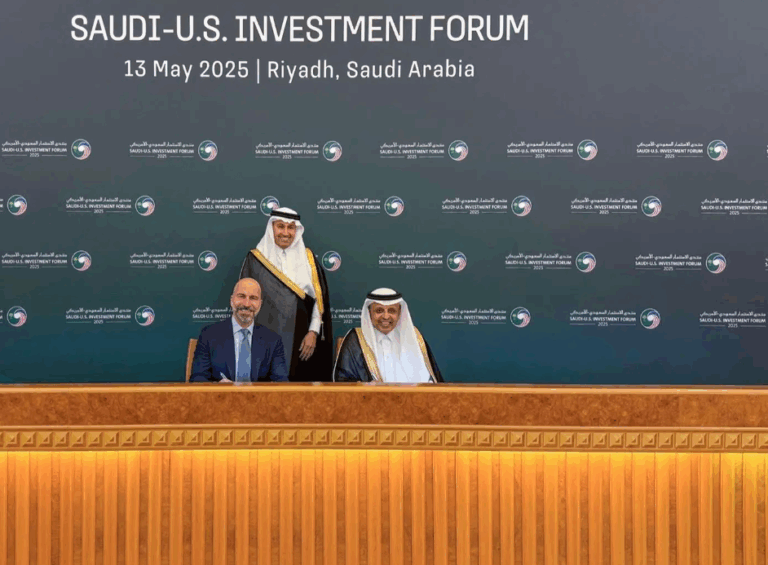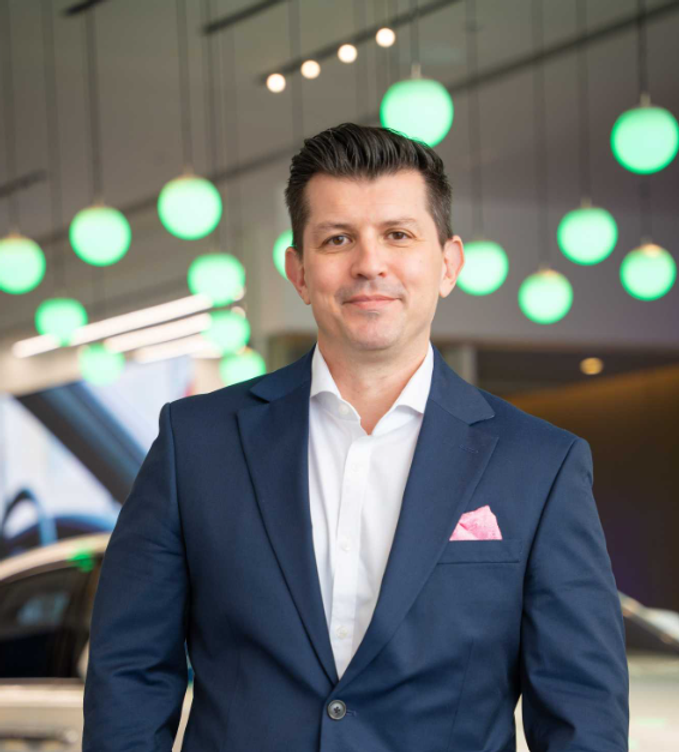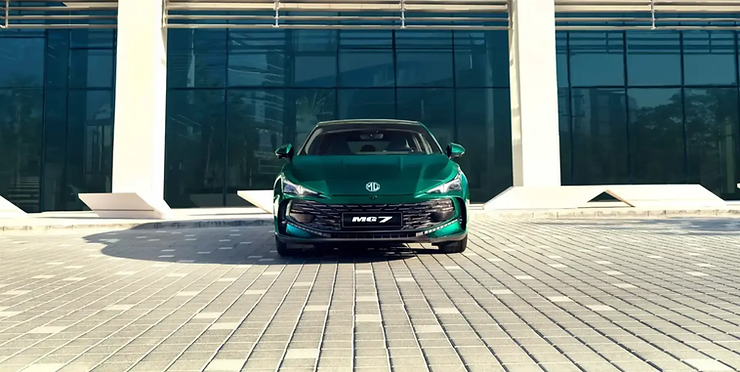**Título:** GCC Consumers Embrace Electric Vehicle Savings
**Intro:** Rising fuel costs and environmental concerns are driving UAE (73%) and Saudi (69%) consumers toward EVs, reveals a GM-commissioned survey. With 95% regional awareness, over 60% now consider purchasing EVs, buoyed by long-term savings and expanding charging infrastructure. GM aims to exceed range expectations, aligning with carbon-neutral goals.
**Factbox:**
– 95% UAE, 93% KSA aware of EVs.
– 70% UAE, 63% KSA consider purchase.
– 73% UAE see long-term savings.
– UAE: 600 charging stations; KSA targets 30% EVs by 2030.
– Optimal range: 325km UAE, 360km KSA. GM’s Ultium exceeds 400km.
*(50 palabras)*
**El auge de los vehículos eléctricos en Medio Oriente: Conciencia, infraestructura y visión de futuro**
—
### **1. Interés creciente en vehículos eléctricos (VE) en Emiratos Árabes y Arabia Saudita**
El 73% de los consumidores en Emiratos Árabes Unidos (EAU) y el 69% en Arabia Saudita (KSA) muestran un interés activo por conocer los **ahorros económicos** asociados a los vehículos eléctricos. Este entusiasmo se refleja en la intención de compra: **70% en EAU y 63% en KSA** considerarían adquirir un EV, según un estudio de Morning Consult para General Motors (GM).
La **conciencia sobre los VE** es casi universal:
– **95% en EAU** y **93% en KSA** afirman conocer su existencia.
– Este conocimiento se mantiene alto en todos los grupos demográficos, incluyendo diferentes edades y géneros.
—
### **2. Factores clave que impulsan la adopción de VE**
Los consumidores priorizan dos aspectos: **ahorro a largo plazo** y **sostenibilidad**.
– **EAU**: El 64% de quienes consideran un EV hoy (vs. hace un año) citan el **aumento del precio de la gasolina** y la **reducción de preocupaciones ambientales**. El 73% cree que un EV genera ahorros significativos frente a un vehículo convencional.
– **KSA**: El 65% está más interesado hoy en EVs, con el **61% motivado por el costo de la gasolina** y el **47% por la mayor accesibilidad de modelos eléctricos**.
—
### **3. Autonomía y tecnología: Superando expectativas**
La **autonomía deseada** varía entre ambos mercados:
– **EAU**: 325 km por carga.
– **KSA**: 360 km por carga.
No obstante, la **plataforma de baterías Ultium de GM** supera estas expectativas, ofreciendo más de **400 km de autonomía**, lo que alinea la tecnología con las demandas regionales. En KSA, el 36% atribuye su mayor interés a la mejora en la autonomía de los EVs.
—
### **4. Infraestructura de carga: Avances y desafíos**
**EAU lidera en infraestructura**:
– **600 estaciones de carga** operativas, con planes de expansión hasta 2050.
– El 38% de los encuestados conoce al menos una estación cercana, y el 80% tiene acceso en estacionamientos públicos o residenciales.
En **KSA**, el panorama es mixto:
– Solo el 17% percibe estaciones de carga cerca de su hogar o trabajo.
– Riyadh apunta a que el **30% de los vehículos sean eléctricos para 2030**, lo que exige acelerar la instalación de infraestructura.
—
### **5. Estrategia de General Motors: Innovación y colaboración**
Jack Uppal, Presidente de GM África y Medio Oriente, destaca:
– **Diversificación de opciones**: Ampliar la oferta de EVs para todos los presupuestos.
– **Soluciones de carga centradas en el usuario**: Priorizar carga residencial, complementada con infraestructura pública y comunitaria.
– **Alianzas con gobiernos**: Adaptar estrategias locales para cumplir metas de neutralidad de carbono.
—
### **6. Alineación con metas globales y regionales**
El crecimiento de los EVs en la región respalda objetivos ambiciosos:
– **Proyecciones globales**: Ventas de EVs pasarían de $10 mil millones (2023) a $90 mil millones anuales para 2030.
– **Compromisos ambientales**: EAU y KSA buscan neutralidad de carbono, impulsando políticas que favorecen la movilidad eléctrica.
GM alinea su visión con **cero emisiones, cero accidentes y cero congestión**, reforzando su rol como actor clave en esta transición.
—
**En síntesis**, Medio Oriente emerge como un mercado estratégico para la electrificación, combinando conciencia ciudadana, avances tecnológicos y compromisos gubernamentales. La colaboración entre fabricantes y líderes locales será crucial para superar retos de infraestructura y consolidar una movilidad sostenible.
**15 FAQs About Electric Vehicle Adoption in the UAE and Saudi Arabia**
1. **What percentage of UAE and Saudi consumers are interested in learning about EV cost savings?**
– 73% in the UAE and 69% in Saudi Arabia want to know more about EV cost reductions.
2. **How aware are residents of EVs in these countries?**
– 95% of UAE respondents and 93% in KSA are aware of EVs, with consistent awareness across age and gender groups.
3. **What portion of consumers are strongly interested in buying an EV?**
– 70% in the UAE and 63% in Saudi Arabia express strong interest due to increased awareness.
4. **How do EV cost savings compare to gasoline cars in the UAE?**
– 73% of UAE consumers believe EVs offer significant long-term savings over gasoline vehicles.
5. **Why are more people considering EVs in the UAE now?**
– Rising fuel costs (64%) and reduced environmental concerns (64%) are top motivators.
6. **What factors drive EV interest in Saudi Arabia?**
– 61% cite gasoline prices, while 47% note EVs becoming more affordable recently.
7. **What driving ranges do consumers expect from EVs?**
– UAE: 325 km average; Saudi Arabia: 360 km. GM’s Ultium platform exceeds both at 400+ km per charge.
8. **How does Saudi Arabia’s charging infrastructure compare to the UAE’s?**
– 40% in KSA know of charging stations, but only 17% find them near home/work. The UAE has 600 stations, expanding rapidly.
9. **What are the carbon neutrality goals linked to EV adoption?**
– UAE aims for 2050 carbon neutrality; Riyadh targets 30% electric vehicles by 2030.
10. **How is GM supporting EV infrastructure in the region?**
– GM is collaborating with governments on public, residential, and community charging solutions, prioritizing home charging.
11. **What percentage of UAE residents have access to convenient charging?**
– 38% know of nearby stations, with 80% having home parking access. Public/shared parking leads in availability.
12. **Why is EV driving range a key consideration?**
– 36% in Saudi Arabia attribute growing interest to improved EV ranges compared to older models.
13. **How do global EV sales projections align with regional trends?**
– Global EV sales may rise from $10B (2023) to $90B by 2030, matching UAE/KSA’s carbon neutrality efforts.
14. **What role does affordability play in EV adoption?**
– GM plans diverse EV options to address affordability concerns, targeting “every customer and budget.”
15. **How will GM’s strategy evolve with consumer needs?**
– GM aims to shift focus from range/affordability worries to highlighting ownership benefits, aligning with zero-emissions goals by 2050.
**CTA:**
¿Listo para unirte a la revolución eléctrica? Descubre cómo los vehículos eléctricos pueden ahorrarte dinero y contribuir a un futuro sostenible. **¡Explora los modelos de GM y encuentra el EV perfecto para tu estilo de vida!** [👉 Haz clic aquí para conocer más](enlace-de-GM).
—
**Conclusión:**
El creciente interés por los vehículos eléctricos en Emiratos Árabes Unidos y Arabia Saudita refleja un cambio trascendental hacia la movilidad sostenible. Con una conciencia cada vez mayor sobre los ahorros económicos, la reducción de emisiones y el avance en infraestructura de carga, la región está posicionándose como líder en la adopción de tecnologías limpias. Los esfuerzos de empresas como General Motors, aliados con las metas de neutralidad de carbono de ambos países, demuestran que el futuro de la movilidad no solo es eléctrico, sino accesible y alineado con las necesidades reales de los conductores. La combinación de innovación, políticas visionarias y demanda ciudadana está acelerando una transformación que beneficiará a las generaciones venideras.
—
**Agradecimiento:**
Gracias por leernos y ser parte de esta conversación crucial sobre el futuro de la movilidad. ¿Tienes dudas sobre vehículos eléctricos o quieres compartir tu experiencia? **¡Déjanos un comentario!** No olvides suscribirte a nuestro blog para mantenerte informado sobre las últimas tendencias en tecnología, sostenibilidad y automoción. Juntos, impulsamos el cambio hacia un mundo más limpio y eficiente. 🔌🚗💨
—
*Fuente: Datos recopilados por Morning Consult para General Motors (2023).*




